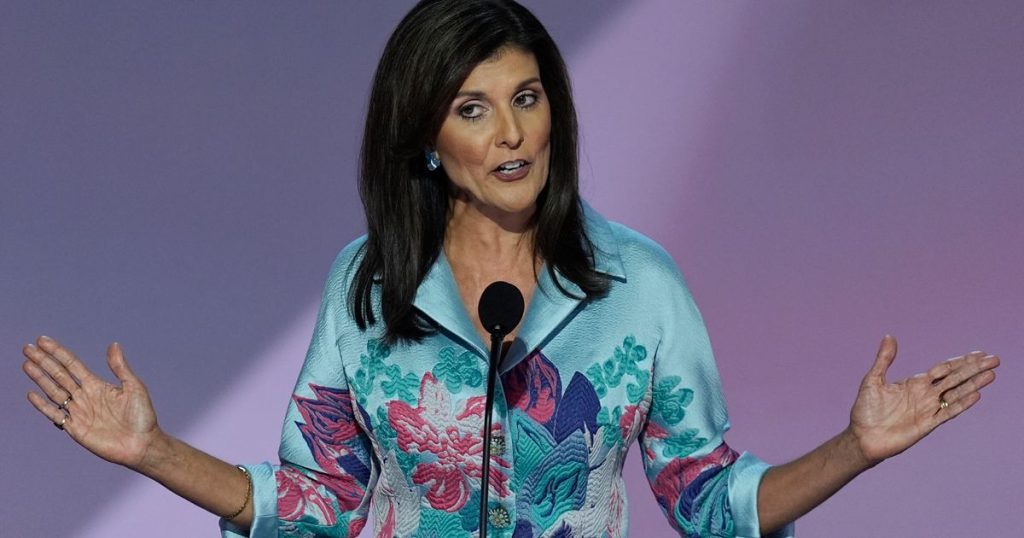In a recent interview with Margaret Brennan of CBS News, former Republican presidential candidate Nikki Haley expressed her unwavering support for former President Donald Trump despite his sexual assault case and the misogyny exhibited by his running mate, JD Vance. She highlighted that her focus is on policy rather than personal matters, stating that while she may not agree with Trump’s style or approach, she believes his policies are more beneficial for the country compared to those of Vice President Kamala Harris. Haley mentioned that she is prepared to campaign for Trump if needed, emphasizing that she prioritizes substance over style in political matters.
When questioned about Vance’s controversial remarks concerning women, Haley acknowledged that his comments were not helpful but reiterated her focus on policy issues such as tax cuts, housing affordability, immigration, and national security. She emphasized that while Vance’s style may be lacking, the substance of his policies is what should be considered when evaluating a candidate. Haley’s support for Trump and Vance, despite their problematic behavior, reflects her preference for their policies and the impact they have on the country.
Despite working as a U.N. ambassador under Trump and expressing her disagreement with him on certain issues, Haley ultimately sides with the former president over Vice President Harris due to her belief in the effectiveness of Trump’s policies. Brennan noted that Haley’s stance on supporting Trump could be seen as “grading on a curve,” suggesting that she may be lenient in her evaluation of Trump’s actions and statements. Haley’s shift from being a critic of Trump during her own presidential campaign to a full-fledged supporter reveals her prioritization of policy outcomes over personal opinions of candidates.
Haley’s decision to stand by Trump and Vance regardless of their controversial actions raises concerns about the messaging that political figures prioritize in their public statements and support of candidates. While Haley acknowledges the problematic behaviors exhibited by both individuals, she ultimately chooses to focus on the substance of their policies rather than their personal conduct. This approach reflects her belief that policy outcomes should take precedence over personal grievances, highlighting the complexities of political decision-making and the compromises that individuals may have to make in order to advance their policy priorities.
The interview with Brennan also sheds light on Haley’s stance on key policy issues and her evaluation of different candidates in the political landscape. While she may not agree with all aspects of Trump’s presidency or the behavior of his allies, Haley aligns herself with their policy decisions and positions on important issues facing the country. Her willingness to overlook personal flaws in favor of policy achievements underscores the challenges that individuals face in navigating political loyalties and decision-making in a complex and polarized political environment.
Overall, Haley’s interview with Brennan highlights the tensions and complexities that individuals in the political sphere face when evaluating candidates and deciding where to place their support. Haley’s prioritization of policy outcomes over personal conduct raises questions about the role of personal integrity and ethical considerations in political decision-making, as well as the challenges of navigating political allegiances in a divisive political landscape. Her shift from being a critic of Trump to a full-throated supporter underscores the nuanced and sometimes contradictory positions that political figures may find themselves in as they navigate competing interests and priorities in the pursuit of their policy goals.


